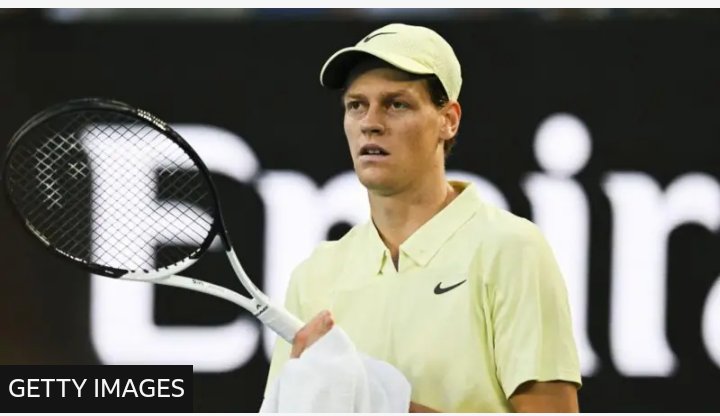Jannik Sinner Accepts Three-Month Ban After Doping Settlement.
World number one Jannik Sinner has accepted a three-month suspension from tennis following a settlement with the World Anti-Doping Agency (WADA) over two positive drug tests last year.
The 23-year-old Italian, who won the Australian Open last month, will be suspended from 9 February to 4 May, making him eligible to compete at the French Open, which begins on 19 May.
Sinner had initially been cleared by an independent panel after testing positive for clostebol, a banned substance, in March. However, WADA appealed the decision, seeking a suspension of up to two years. The agency has now withdrawn its appeal following the settlement.

In a statement, WADA confirmed that Sinner “did not intend to cheat” and that the banned substance provided “no performance-enhancing benefit”. It attributed the violation to “the negligence of members of his entourage”.
As a result, Sinner will miss key tournaments, including Indian Wells, the Miami Open—where he is the defending champion—and several clay-court events leading up to the French Open. He will be allowed to resume training on 13 April.
The Italian acknowledged his responsibility for his team’s actions, stating: “I have always accepted that I am responsible for my team and realise WADA’s strict rules are an important protection for the sport I love.”
The decision has sparked debate within the tennis community. Former British number one Tim Henman described the outcome as “too convenient”, while Australian player Nick Kyrgios called it a “sad day for tennis”.
Despite the ban, Sinner remains the world’s top-ranked player. However, with competitors like Alexander Zverev and Carlos Alcaraz chasing him in the rankings, his position could be at risk due to the loss of ranking points from missed tournaments.
The International Tennis Integrity Agency (ITIA) maintains that the ruling supports its initial findings, while Sinner’s lawyer, Jamie Singer, emphasised that his client had “no intent, no knowledge, and gained no competitive advantage”.
Sinner’s case follows a series of high-profile doping incidents in tennis, including former world number one Iga Swiatek, who accepted a one-month suspension in November. The situation has fuelled discussions about consistency in doping rulings and how top players are treated under the sport’s regulations.


